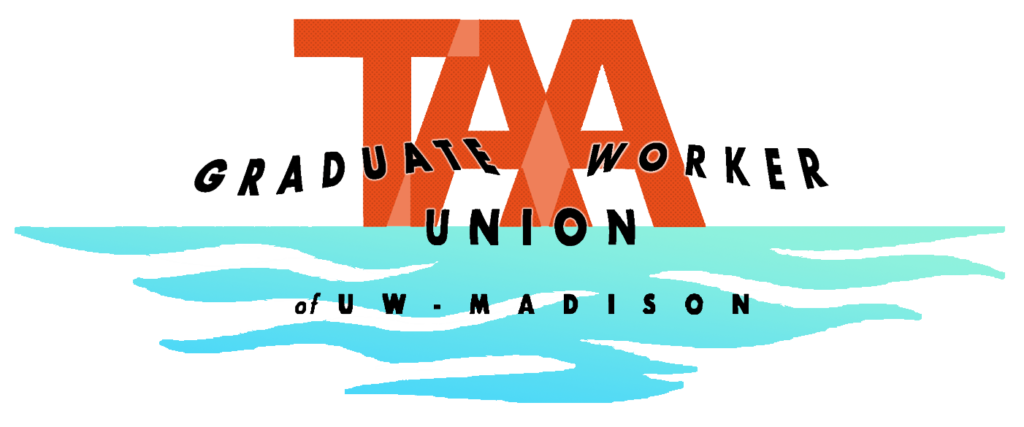[union win!] History TAA works with program admin to prioritize—and achieve—segregated fee relief
![[union win!] History TAA works with program admin to prioritize—and achieve—segregated fee relief](https://taa-madison.org/wp-content/uploads/2024/07/History-wins-seg-fee-1.png)
Grad workers in the History department began holding union organizing meetings in fall 2023 after a long hiatus. At the same time, the department’s Director of Graduate Studies and Graduate Program Manager were holding a series of listening sessions to better understand grad student concerns and priorities.
In order for those meetings to bring change, grad workers needed to unify around a clear, achievable goal. TAA members quickly realized that an important role that the TAA could play was building and channeling consensus among grad workers about the changes that we wanted to see for our program.
In meetings with grad program admin, a number of faculty, and union members,, history grads gained a better understanding of how the department provides support for its graduate students as well as possible ways to improve its provision of support. Through one-on-one conversations among grad workers, and at TAA organizing meetings, history grads came to the consensus that segregated fee relief was their top priority.
TAA stewards and the graduate program admin agreed to use the listening sessions as a venue for frank and open discussions about the department’s financial support for graduate students. Based on this dialogue, the department decided to provide coverage of segregated fees for History department graduate assistants, starting in the 2024-25 academic year.
Segregated fees are mandatory fees charged by the University, not covered by tuition remission. They cost a significant fraction of a TA’s 9-month paycheck, which already is below the living wage for Madison.
Before the listening sessions, TAA members did walkthroughs to make sure people knew that covering seg fees was on the table. In the end, they won segregated fee relief for all graduate students in History.
From History Steward Bennett McIntosh:
First and foremost, the union helped us win segregated fee relief because we won it by working together, and when you work together with your fellow workers, you’re the union.
The TAA provided food for our department-wide organizing meetings, trained some of our organizers to give us confidence in walk-throughs, and led by example — we knew covering seg fees was a possibility because other programs had won it.
This is a revised version of a post from July 8.
